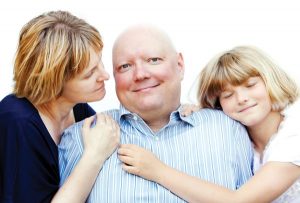
The side effects of cancer treatments can be harsh, but these tips can help ease them.
If someone you love is battling cancer, they may be experiencing several troubling side effects from the treatment they are receiving, and you will want to do what you can to help ease these symptoms. While just being there with them to provide comfort and companionship is in itself extremely helpful, there are additional steps you can take.
What Can I Do to Help Ease the Side Effects of Cancer Treatments?
Below are some of the most common problems that arise from cancer treatments, with steps you can take to help.
- Skin Problems: Someone with cancer is at risk for a number of treatment- and disease-related skin issues. You can help by encouraging the person to use sunscreen, helping to protect the impacted areas of skin from bumps, bruises, or other trauma, and making sure the skin is always clean and dry.
- Hair Loss: You can encourage the person to explore wig options prior to starting treatment (to best match their natural hair color to the wig), if they are concerned about hair loss. Hair loss can also be minimized by using baby shampoo (and washing hair less frequently), and using a soft hairbrush.
- Depression: If you notice signs of depression in the person, share your concern immediately with their doctor, who can evaluate medications being taken for depressive side effects and determine the best course of action to take to help.
- Stomach Upset: Nausea and vomiting are common side effects of chemotherapy, but can be eased with anti-nausea meds, avoiding greasy or spicy foods, and consuming smaller meals more frequently throughout the day. You can help by preparing light, nutritious meals that are more tolerable for the person.
One of the best ways to help the person is by simply being there. Allow the person to share their feelings, fears, and concerns, and respond in a way that shows you are listening and that you care. Sometimes a simple hug or holding hands can be extremely comforting. Be ready for the person to talk about their illness if desired, and always be ready to lend an open and nonjudgmental ear.
Find more cancer care tips from Advanced Home Health Care’s experts in home care assistance in Burlington and the surrounding communities, along with how our in-home care services can make life better for someone with cancer. You can reach us at 800.791.7785 for more information.

